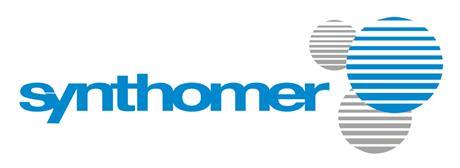Sustainability Award
Sponsored by SLR Consulting
About the award
This award is for the company or operating unit that can demonstrate excellence in sustainability, through its policies, products, manufacturing processes, and supply chain. This was an exceptionally close contest with some fantastic entries.
Judges were impressed by excellent integration of sustainability goals with the business strategy, recognition by a number of external organisations and progress towards those goals. Their innovative Product Sustainability score card sets an excellent, transferable example to others in the sector.
Winner

Case Study
Synthomer produces high-performance, highly specialised polymers and ingredients that bind the modern world together through the broadest range of everyday applications, such as adhesives, coatings, construction materials, and speciality healthcare. Synthomer has committed to achieving Net-Zero by 2050, a goal supported by its Vision 2030 targets. Each year, the company monitors its progress towards the Vision 2030 targets as well as a series of defined interim milestones.
At the same time, the broader corporate strategy at Synthomer is increasingly focused on innovation, sustainability, and end-market orientation as key enablers of success. These are increasingly intertwined: innovating to improve the sustainability benefits of existing products and processes, or developing new ones, is an increasingly important way for Synthomer to meet its end-customers’ needs for responsible solutions. The need then arose to define what a product with sustainability benefits is and to ensure that sustainability criteria were considered from the earliest stages of a project.
The product sustainability scorecard was therefore developed considering four categories for product assessment:
- Input raw materials, both in terms of safety in use, avoiding substances of concern, and of reducing Scope 3 emissions,
- Production processes, minimising the use of energy, water, and waste production,
- Safety of the end product and end-of-life management, with a view to circularity; and
- Finally, the sustainability benefits along the value chain to customers and end-users are also taken into account.
Each category is given a rating from -5 to +5, and the final overall product sustainability assessment can be negative, neutral, positive, or enhanced. The breakdown of the sustainability benefits into the four categories helps Synthomer’s commercial teams in the dialogue with customers, providing specificity and clarity about the sustainability offering.
The scorecard is very user-friendly, which is a key success factor as it facilitates adoption by the project managers. Having a score on the sustainability benefits immediately focuses attention on the projects that are driving the sustainability agenda – and those which don’t. This leads to more informed decision-making and aids in strategic choices around areas of focus or investment in an unbiased and impartial manner.
The versatility of Synthomer’s product sustainability scorecard makes it possible to apply it to various industries, simply by adjusting the categories to the market/product in question. This was one of the reasons why this tool was featured by Gartner as a case study*.
Since its implementation in 2021, the product sustainability scorecard has been used to evaluate more than 200 projects, and more than 30 products with sustainability benefits have been launched. In 2023 the proportion of new product launches with sustainability benefits reached 69%, already exceeding Synthomer’s Vision 2030 objective, and clearly demonstrating how the scorecard has helped to focus the organisation on developing more sustainable new products and raising the level of ambition. Given its success, the sustainability and innovation teams at Synthomer are already working on an enhanced version of the scorecard to help drive the next stage of their sustainable innovation journey.


